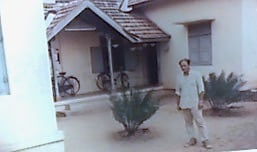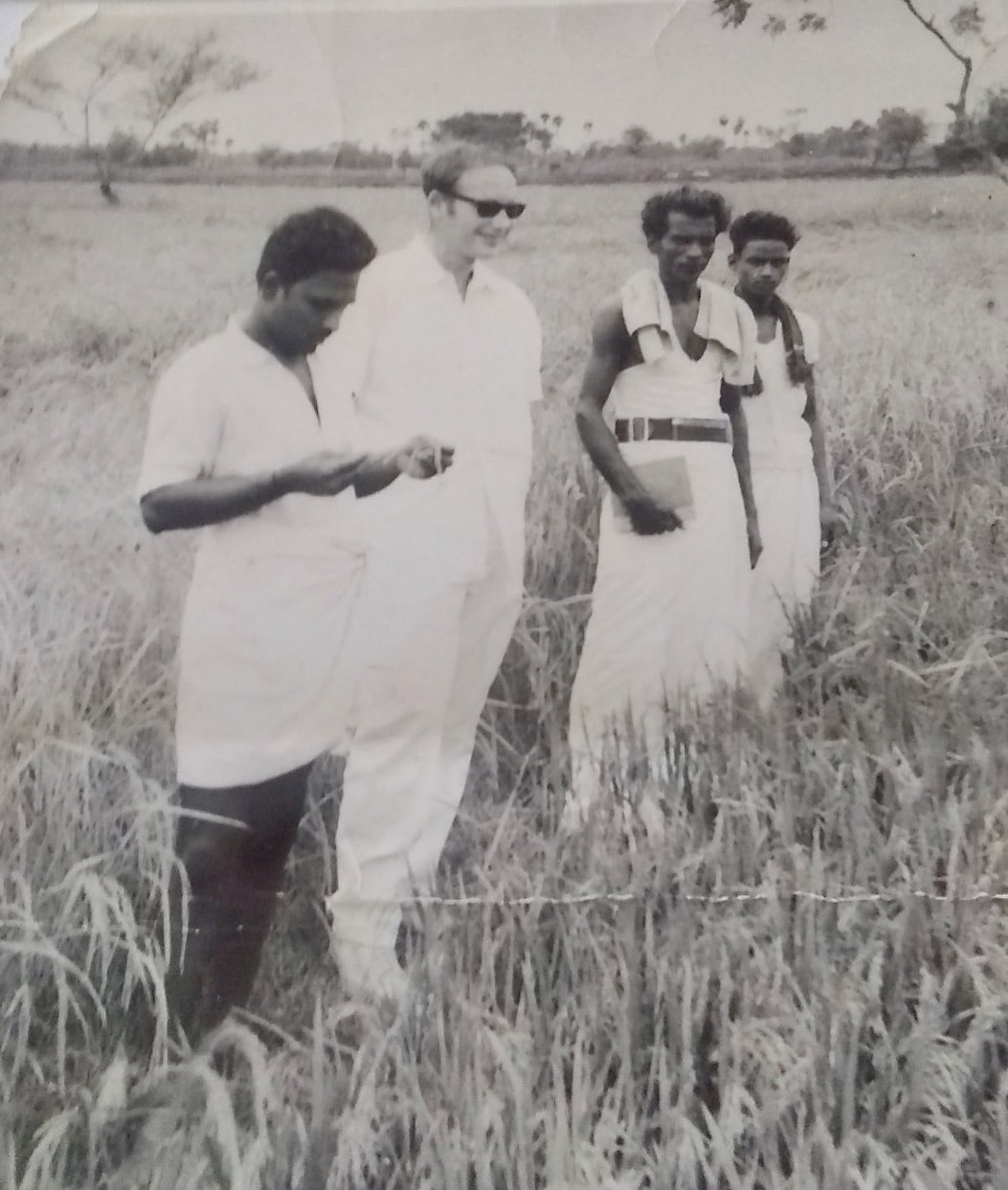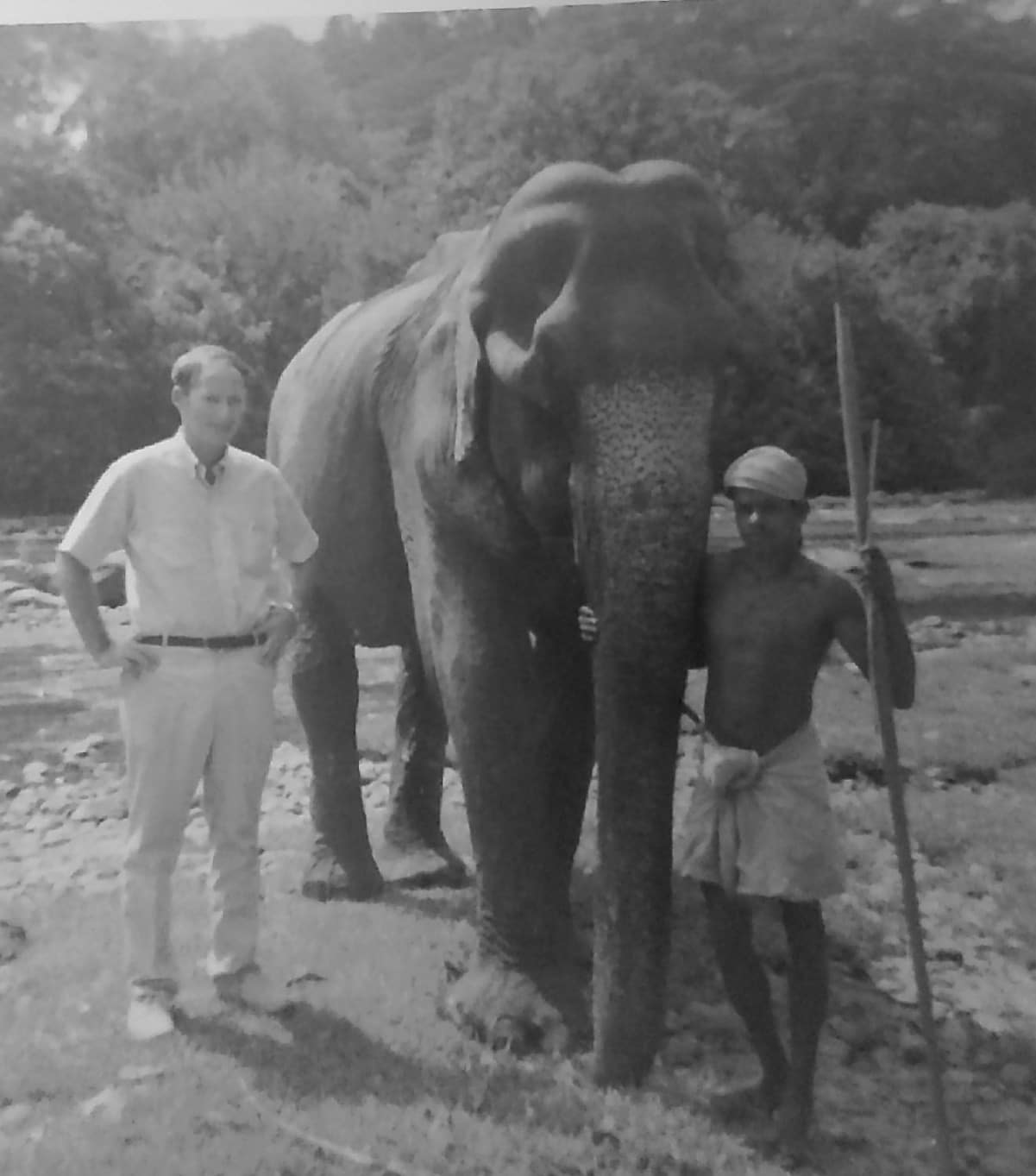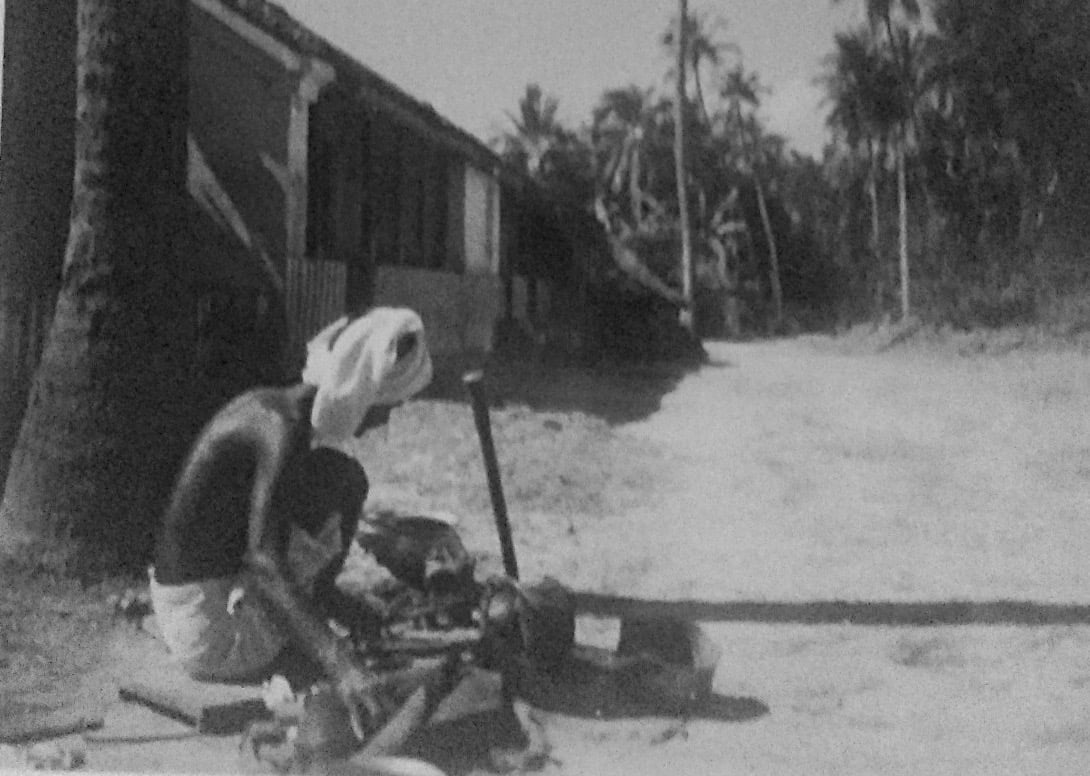In 1969 I was a member of a Peace Corps agricultural extension project sent to Thanjavur District, Tamil Nadu State, India. Thanks to irrigation, monsoons, and tropical latitude, the land was a lush green rice growing area. It was the time when the Green Revolution was being implemented, allowing farmers to dramatically increase crop yields. The new varieties of rice could effectively use large quantities of nitrogen fertilizer. This was possible because they had short strong stalks and could hold the heavy grain until harvest. This agricultural science was developed by Norman Borlaug working with the Rockefeller Foundation. He received the Nobel Prize for his work.
Growing season started in July, with release of water into the irrigation canal system, it continued through the monsoon which ended with a continuous downpour in late December. In January the temperature was moderate, later in the year the climate became dry and very hot.
The Indian government and US aid agencies were encouraging practices to take advantage of the new high yield rice. It was our job to work with government agricultural extension workers to visit farmers with recommendations and materials. Most farmers we visited had few possessions-by American standards. Farmers had cooking utensils, limited furniture and sometimes a family bicycle. They impressed on me the value of family, and the non-value of material things.
Power sprayers had been provided to protect crops against insects and disease. They often were nonfunctional. There were a number of problems including electrical and fuel malfunctions. The machines did not have a fuel filter and consequently clogged carburetor fuel jets were frequently an issue. A simple disassembly allowed the jet to be removed. Tools for clearing the jets were not available, I discovered that a piece of rice straw was a perfect tool. Pushing rice straw through the jet opening solved the problem. With that fix, the engines would roar to life.
As word got out, other villages asked me to I come by and repair their sprayers. I also worked with agricultural workers in maintenance. It was a religious custom in Hindu temples to walk in a circle three times around the deity. Before attempting (hopefully) to start an engine, one of the attendees had us all smiling by jokingly circling the sprayer three times to appease the recalcitrant machine.
After about a year, I was asked to travel to the district capital to write a book about sprayer use and maintenance. It was a more or less weekly commute. I would leave Monday and return later in the week. The trip started with a mile walk to a bus stop. I waited at a coffee stall/restaurant – a thatch roof and tables. The proprietor was amused to tell his staff “Americacvica orru kap kappee kudingo” loosely translated: “Bring a cup of coffee to America”. From there it was bus and train to the Thanjavur train station where several small businesses rented bicycles. On the first trip, a vendor was clearly uncomfortable renting to a strange foreigner. After a time, with bicycles routinely returned, we had a regular working relationship.
An artist employed by the state government was sent from Chennai (Madras) to work with me to draw illustrations. With assistance of the head of the office, the book was written in Tamil script. Morning coffee was special; a gentleman wearing a white jacket and slacks would serve coffee in a china cup and saucer to each of us in the office.
This was a time when telephones were unavailable in rural Thanjavur. There were many missed meetings due to lack of communication. Despite this, the book proceeded to completion. Shortly after I completed PC service the sprayer manual was printed and distributed by the agriculture office. A PCV in my group who had extended, mailed copies to me, which I appreciated. The section on carburetor maintenance was deleted. I assumed that the government was not comfortable with villagers disassembling the machines.







